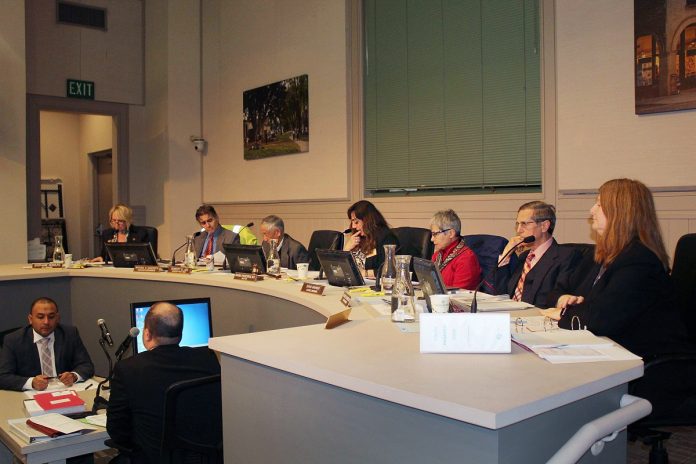Just as they did at their meeting two weeks ago, South Pasadena city councilmembers last night voted not to amend the city’s strategic plan to include an accelerated minimum wage schedule. But also like the April 17 meeting, the vote did not appear to end the matter.
The proposal would advance the city’s implementation of the statutory increases already in place that up California’s minimum hourly wage by one dollar each year until reaching $15/hour in 2022 for business with at least 26 employees and 2023 for those with less than 26.
Four council members voted to keep the strategic plan as is, while District 3 Councilman Richard Schneider, who joined the unanimous vote April 17, opted this time to abstain. Schneider told the South Pasadenan News he wanted “more consideration of what I thought was an outpouring of sentiment in favor of minimum wage acceleration.“ He said he wants acceleration to take place “this year.”
Ten citizens—four more than last time—turned out to support the plan, while only one spoke against it. Four were high school students while two others were among those who successfully campaigned for a similar measure in Pasadena in 2016.
As before, the Council said it needs additional data to properly vet the proposal but can’t afford now to burden city staff with the additional work. District 5 Councilwoman Diana Mahmud said she wants a full-on “economic analysis” of the impacts. At its last meeting, the Council asked for information from the Chamber of Commerce and city attorney.
Last night, City Attorney Teresa Highsmith said non-profits are not exempt from the state schedule, and that the few other cities in Los Angeles County that have passed similar ordinances gave ample lead time. The Chamber responded with a letter saying it could not estimate what it would take to gather the requisite data on how city businesses would be impacted.
This time, the Council voted only after agreeing to call for more research to be compiled by an unspecified “citizens’ committee.”
After the vote, activist John Srebalus condemned the “the misinformation, disinformation, side-dealing and outright incompetence” of the Council and dismissed the call for a citizens’ committee as “a sham to save face while they run out the clock.” He said his group has spent five months supplying the city with data, analysis, precedents and public support.
Citing concerns raised at the last meeting, Srebalus said he was ready to amend the proposed ordinance his group submitted to slow the acceleration so that the minimum wage in South Pasadena would increase on July 1, 2019 to $13.50/hour instead of the previously proposed $14.25; but it would still hit $15/hour on July 1, 2020, well before the state target. He also said only five “mid-size” business in South Pasadena would be effected, while business with less than 26 employees and non-profits would be exempt.
But that wasn’t enough to alleviate the Council’s overarching concern that acceleration would not give city employers enough lead time. Businesses in Pasadena had three years, Highsmith said, though one of the Pasadena minimum wage campaigners disputed that. Highsmith said South Pasadena has a “tradition” of months-long engagement processes for major new policies and could not implement an accelerated minimum wage sooner than 2020.
Realistically, a minimum of six months is needed, Mahmud said. There was also discussion back and forth over how enforcement would be handled; Pasadena has its own prosecutor, Mahmud noted. Highsmith said the city could cede enforcement to the state, though that would raise other issues.
Mayor Marina Khubesrian of District 2 said she was sympathetic to the advocates but said acceleration “would create a jarring impact” on businesses. She questioned the fairness of implementing a schedule that would affect some businesses but not others. And she responded to the high school-aged advocates–some of whom said that absent acceleration they’d look for jobs outside the city–by pointing out many entry level jobs pay 85 percent of the minimum wage, and do so in part because they offer first time work learning experience. She said she’d spoken to restaurant owners who said acceleration would reduce the number of positions for younger people as they could hire older workers for the same amount.
The Mayor also said the city can only do so many things. It is already a leader in areas such as education, which serves as a more effective route out of poverty than a minimum wage increase. “We can’t lead in everything.”















.png)







